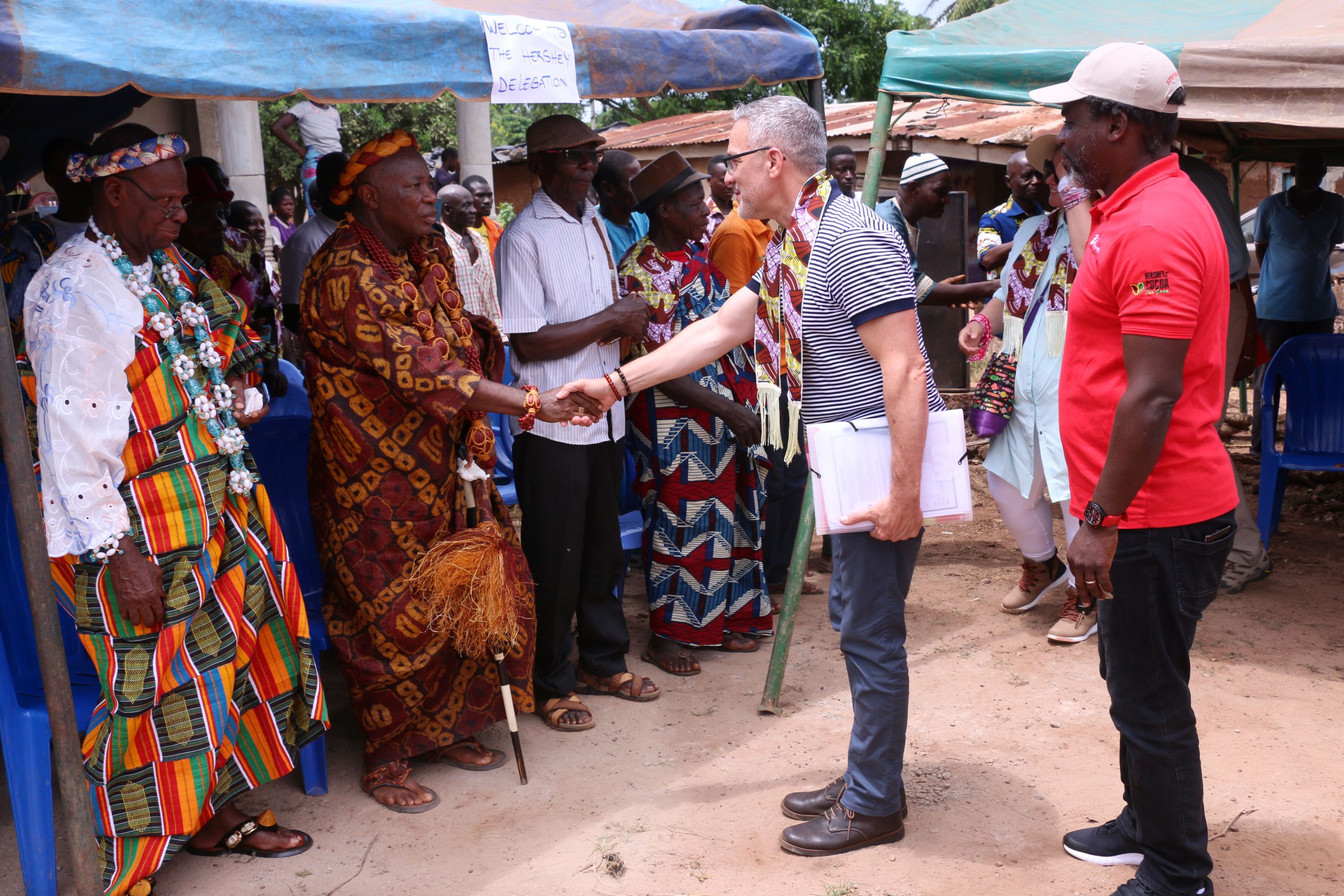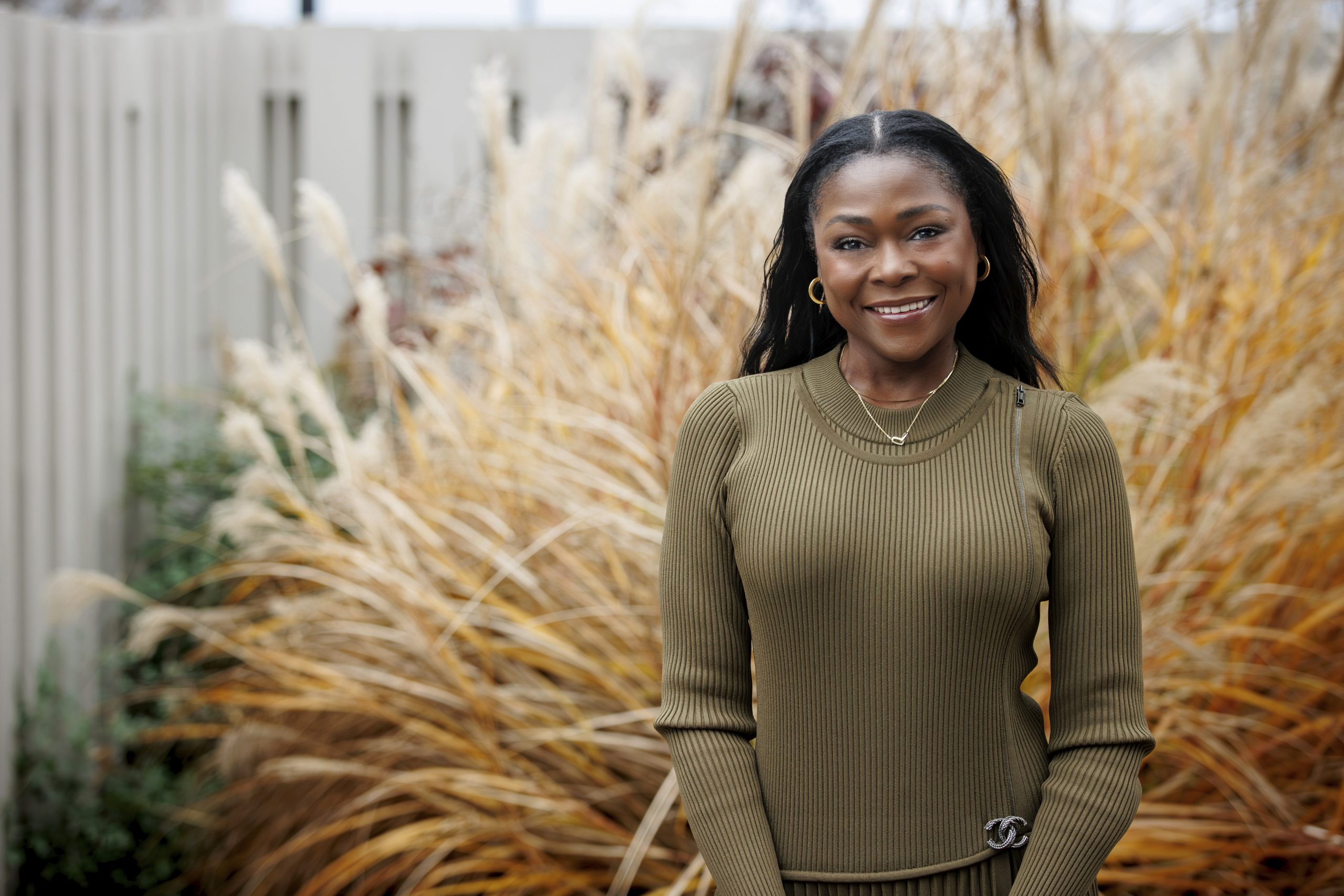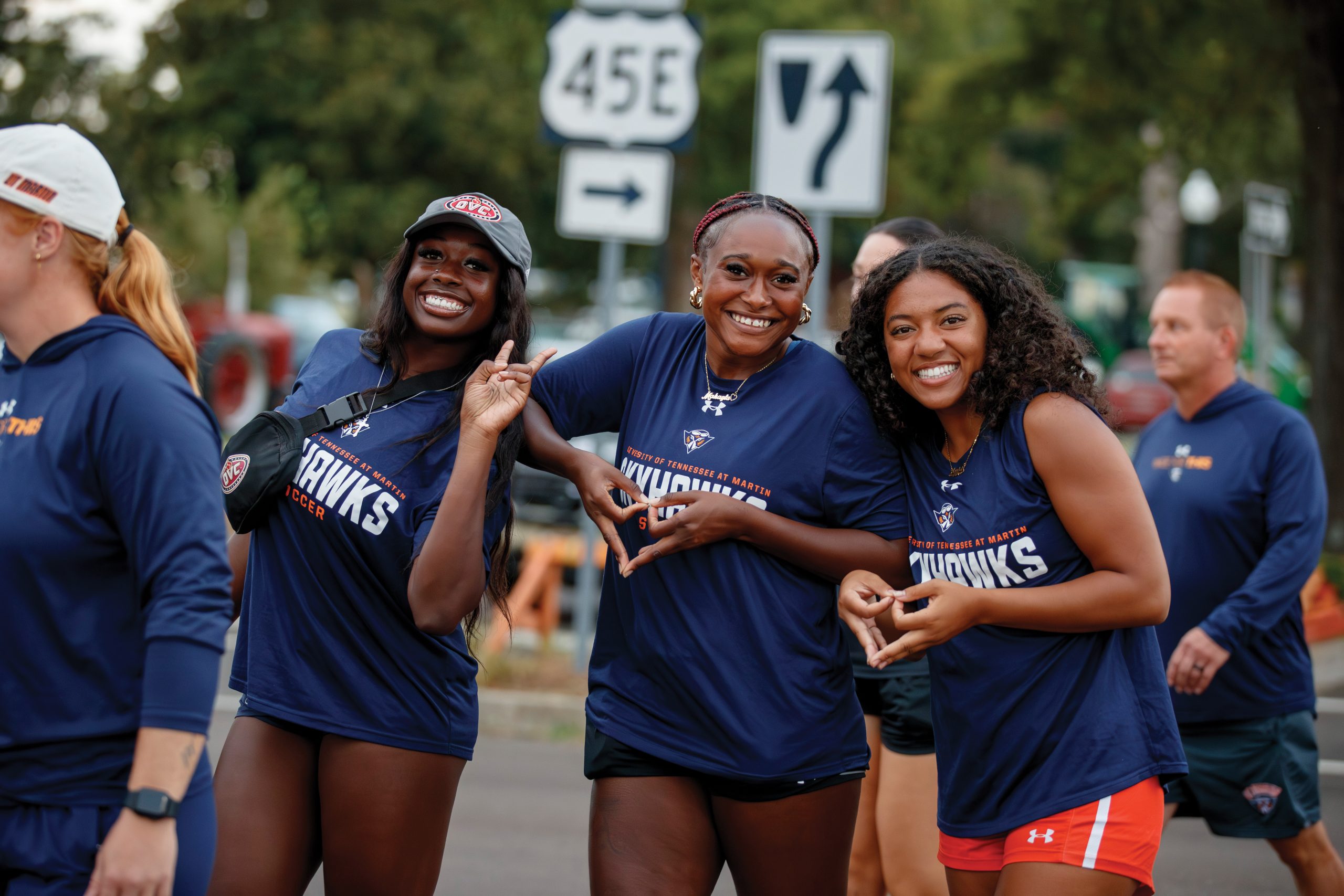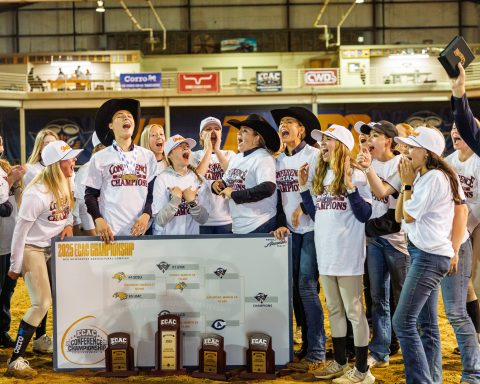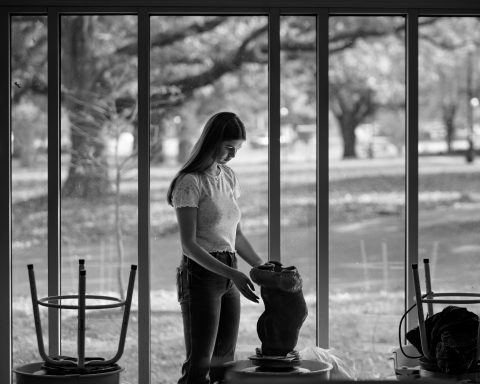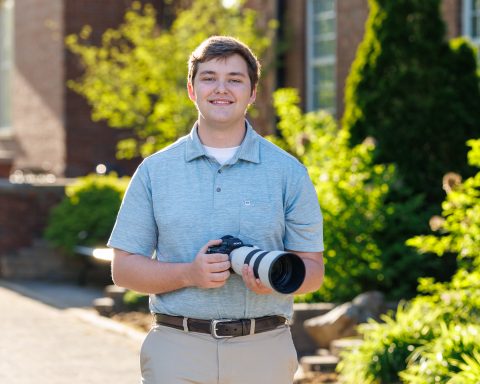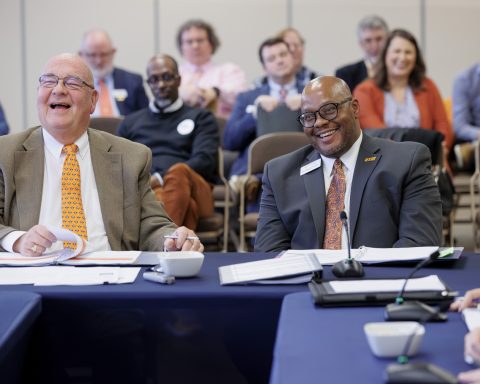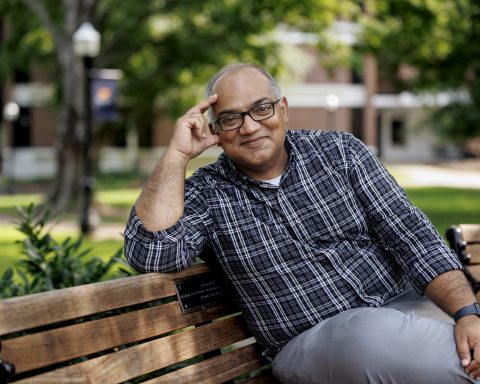Story by Bud Grimes & Tim McCoy | Photos provided by Tim McCoy & The Hershey Company
Saying a person “makes a difference” is almost cliché, but the description fits Tim McCoy (’90) perfectly. The director of cocoa partnerships for The Hershey Company has made a difference in people’s lives while working internationally throughout his career. Raised on a Bradley County dairy farm, the work ethic he learned at an early age and a love for international travel led to an overseas career focused on the African continent.
He has worked directly with notable leaders such as President Jimmy Carter and Rosalynn Carter, the late Gen. Colin Powell, Côte d’Ivoire (Ivory Coast) first lady Dominique Ouattara and others, and his work isn’t finished yet as he continues to seek to improve lives in developing nations.
He talked about his past, the present and what he sees for himself in the future during a video call from Europe.
Historic connections to East Tennessee
McCoy said his family traces its roots to Tennessee even before statehood in 1796. His fourth great-grandfather served in a Continental Army company commanded by Capt. John Sevier in what is now northeast Tennessee during the American Revolution.
McCoy’s ancestors were pioneer settlers of Bradley County in the 1830s after the Cherokees were forced to move west along the infamous Trail of Tears. Red Clay State Park, site of Cherokee Nation’s last council before the removal, lies just to the southwest of the family farm.
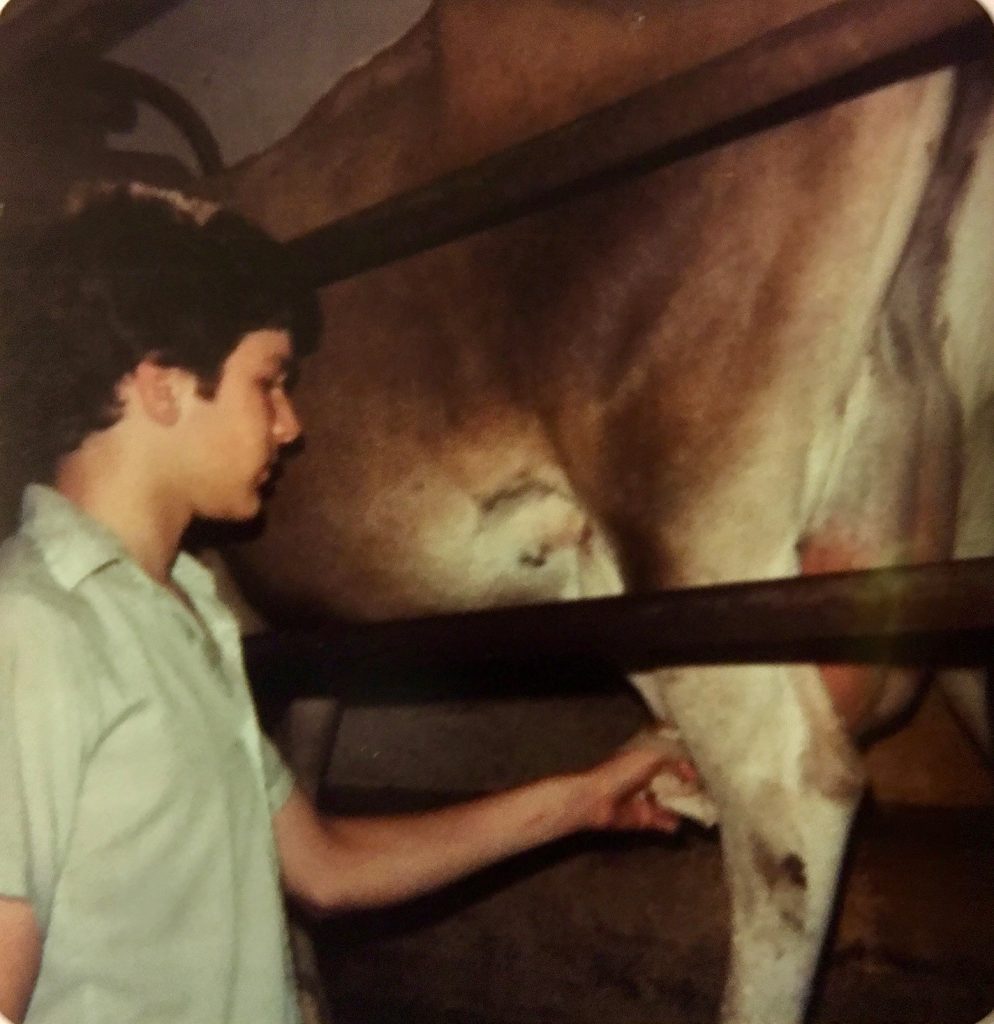
He joined his parents, two sisters and a brother milking the family’s small herd of Jersey cows each morning and evening, while also working on the farm during weekends and school holidays, fondly remembering autumn days spent listening to UT Vols football games on the dairy barn’s barely functioning old AM/FM radio: “So that instilled in me a strong work ethic, definitely a strong sense of family and a love of nature,” he said. “And those are things that have continued throughout my life and very much influence me to this day.”
The farm’s rural location limited entertainment choices for McCoy in the days before web-based or cable TV. Weak ABC, CBS and NBC reception from Chattanooga via an aerial antenna made a PBS affiliate in nearby Chatsworth, Georgia, the more reliable source of educational programming. This, along with a steady supply of magazines like National Geographic and a well-worn Encyclopedia Britannica exposed him to the wider world.
Travel was limited to school activities through his teens, so UT Martin became a top college choice partly as a way to see another part of the state.
Good high school grades earned him scholarship money, and an older sister living in nearby Henry County sealed his interest to venture more than 300 miles west from the family dairy farm to pursue a college education.
Exploring the world begins at UT Martin
McCoy grew up in a family where political discussions were common among a mix of strongly opinionated Democrats and Republicans. Add to this growing up in the 1970s and 1980s and following the presidencies of Richard Nixon, Gerald Ford, Jimmy Carter and Ronald Reagan, and McCoy was more than prepared to study political science, ultimately adding an emphasis on international relations. His other academic interest was French, which he traced to his older sister.
“French was a little bit random to be honest with you,” he said. “My older sister had taken it as an optional credit at Bradley Central High School, and a couple of years later, I had the same opportunity.”
His choice to study French was a decision that has greatly influenced his career, and he credits retired French faculty member Dr. Bob Peckham and the late Maria Malone for their encouragement to learn the language.
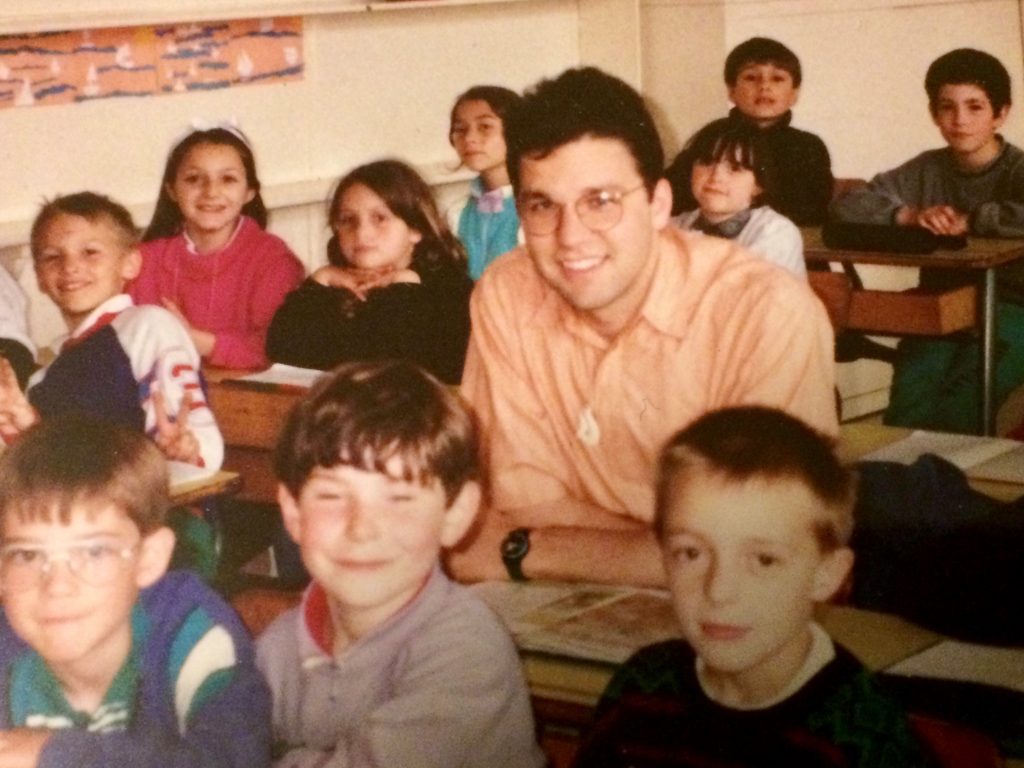
Outside class, McCoy served in the Student Government Association, contributed to student newspapers and was a resident assistant in Austin Peay Hall. He also was involved in the political science club and the Intercollegiate Academic Team, and considers late political science faculty members Drs. Richard Chesteen and Ted Mosch as mentors. He had been at the university three years when travel opportunities much farther afield surfaced, in the form of a Rotary Foundation scholarship that led to a year studying at Victoria University of Wellington, New Zealand, before returning to Martin to complete his degree.

Hershey’s Kisses Chocolates were first manufactured in 1907 and were wrapped by hand until 1921.
“And right at the end of that (completing his degree), Maria Malone alerted me to an opportunity to apply for a position in France teaching English to school children,” he said. “It was through the Alliance Française in Nashville.”
After graduation, he spent a year in Normandy, France, which, combined with his New Zealand experience, set him on his career path. “Indeed, while I was working as a teacher in Deauville, France, I applied for an internship at the U.S. Department of State in Washington, D.C., moving there in early 1992,” he said.
Seeing lives change
McCoy put his language skills to work in accepting the State Department internship. This happened soon after the fall of the Berlin Wall in 1989 when democratization was spreading across Europe and had reached Africa. He first worked on analyzing political developments across the African continent, and the experience fired his interest in African politics and history and confirmed his lifelong career focus.
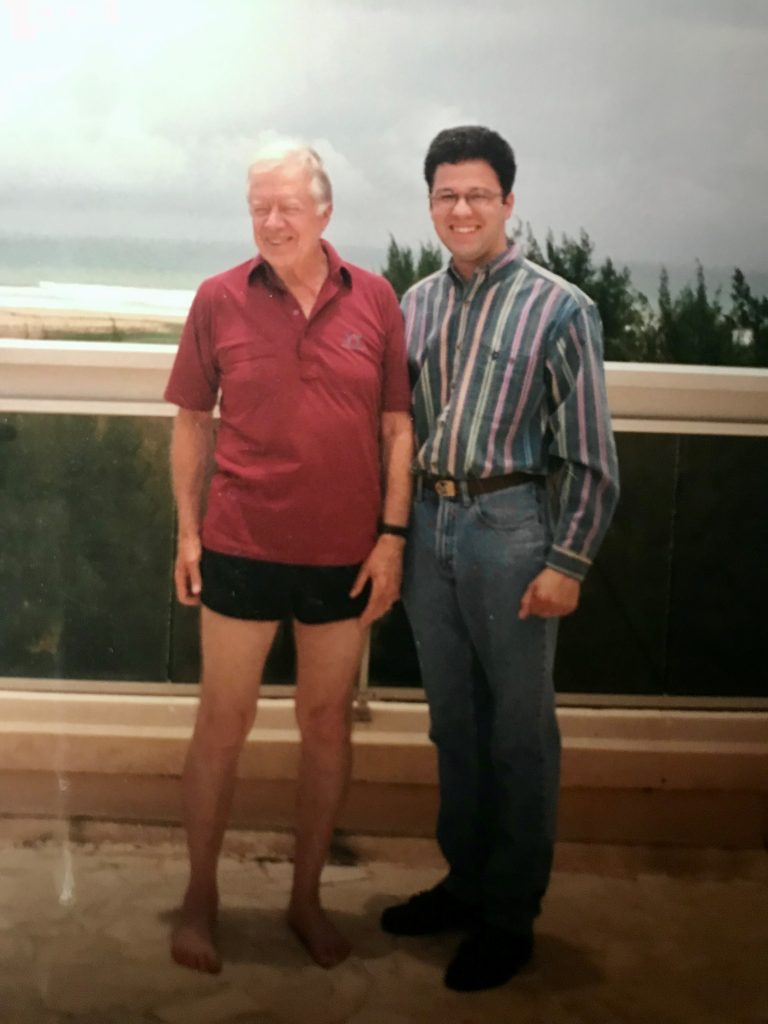
After he completed the internship, he accepted a position with a Washington-based organization named the National Democratic Institute for International Affairs, which broadened his experience and perspective during an important time in world history.
“I observed quite a number of first-time multi-party democratic elections in Africa during the 1990s,” he said. “I was an international observer to the 1994 elections in South Africa that ended apartheid and brought about multi-racial majority rule under the leadership of Nelson Mandela.
“I remember vividly the huge, long lines of people waiting to cast the first votes in their lives and the ensuing enthusiasm and euphoria that swept over South Africa as it at long last overcame decades of violence and struggle.
McCoy accompanied many high-level political leaders from Africa, Europe and the U.S., including Jimmy and Rosalynn Carter, Colin Powell and others, on election observation missions and in discussions focused on sharing experiences about how multi-party, democratic countries function.
He laughs while recalling how once he arrived with two colleagues to meet the president of an eastern African country at his residence and was ushered perhaps too quickly by presidential staff into a large lounge-like room.
At first, the room seemed empty until McCoy spotted at one side of the room the surprised president still on his hands and knees trying to find a favorite movie in a collection of videos kept on low shelves of a TV cabinet.
“That was quite an experience. I was traveling frequently to countries across Africa while living in Washington, D.C., which for a young person in the 1990s was a very interesting and exciting place as well,” he said. “So, yeah, that was quite a period in my life.”
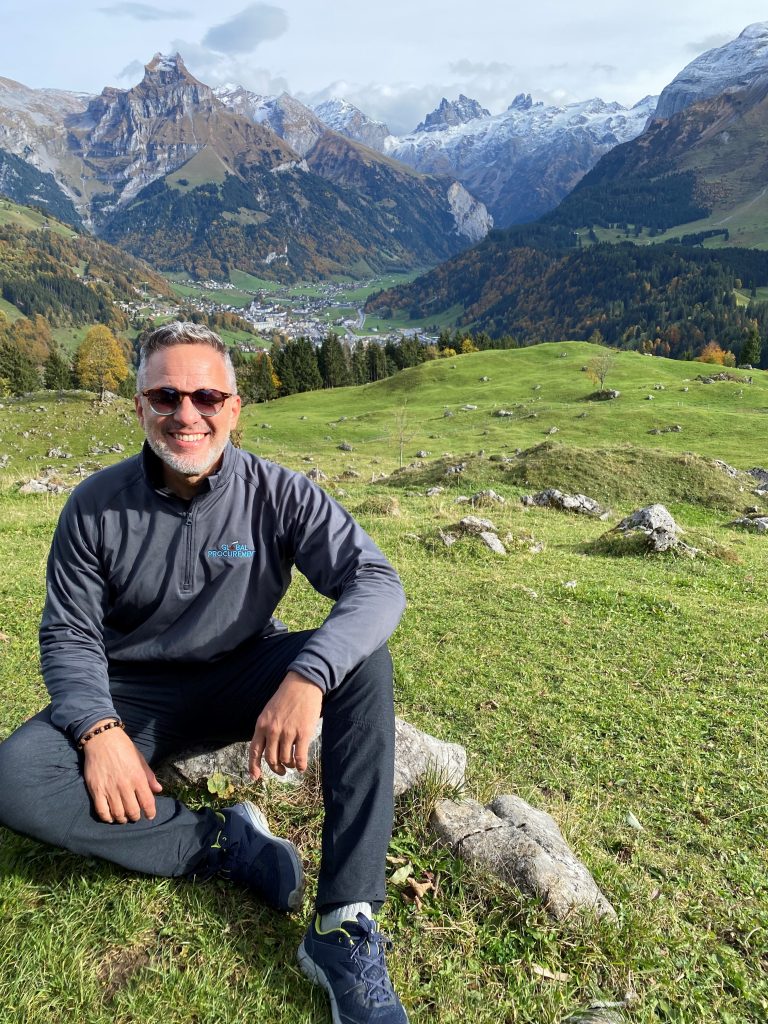
With this experience under his belt, McCoy pursued a different career focus while keeping Africa in his sights.
“I was heavily involved in political development work across Africa throughout the 1990s, but turning toward business development in the overall context of the U.S.-Africa relationship,” he said. “I ended up working at a nonprofit association of American companies that promotes increased trade and investment ties between the U.S. and countries on the African continent. This work provided me the first opportunity to both live and work in Africa, in Lusaka, Zambia, in the early 2000s, and that ultimately led to me being recruited for a position focusing on cocoa specifically.”
This happened in 2012, and McCoy began working with chocolate manufacturers and cocoa trading companies on a range of measures to build a sustainable cocoa supply chain. This ultimately provided an opportunity to be based for 2.5 years in Abidjan, Côte d’Ivoire, a city of 5 million that he already knew from working there with NDI in the 1990s. Fast-forward to 2021 and McCoy’s current role with The Hershey Company.
A better world through education
McCoy lives in Lucerne, Switzerland, at the foot of the Swiss Alps, and not far from the Hershey office in Zug. In an example of how life can come full circle, he first visited Lucerne in 1986 as part of a tour led by the late UT Martin history professor Dr. Charles Ogilvie. He had no way of knowing then that central Switzerland would one day be both home and his principal work location.
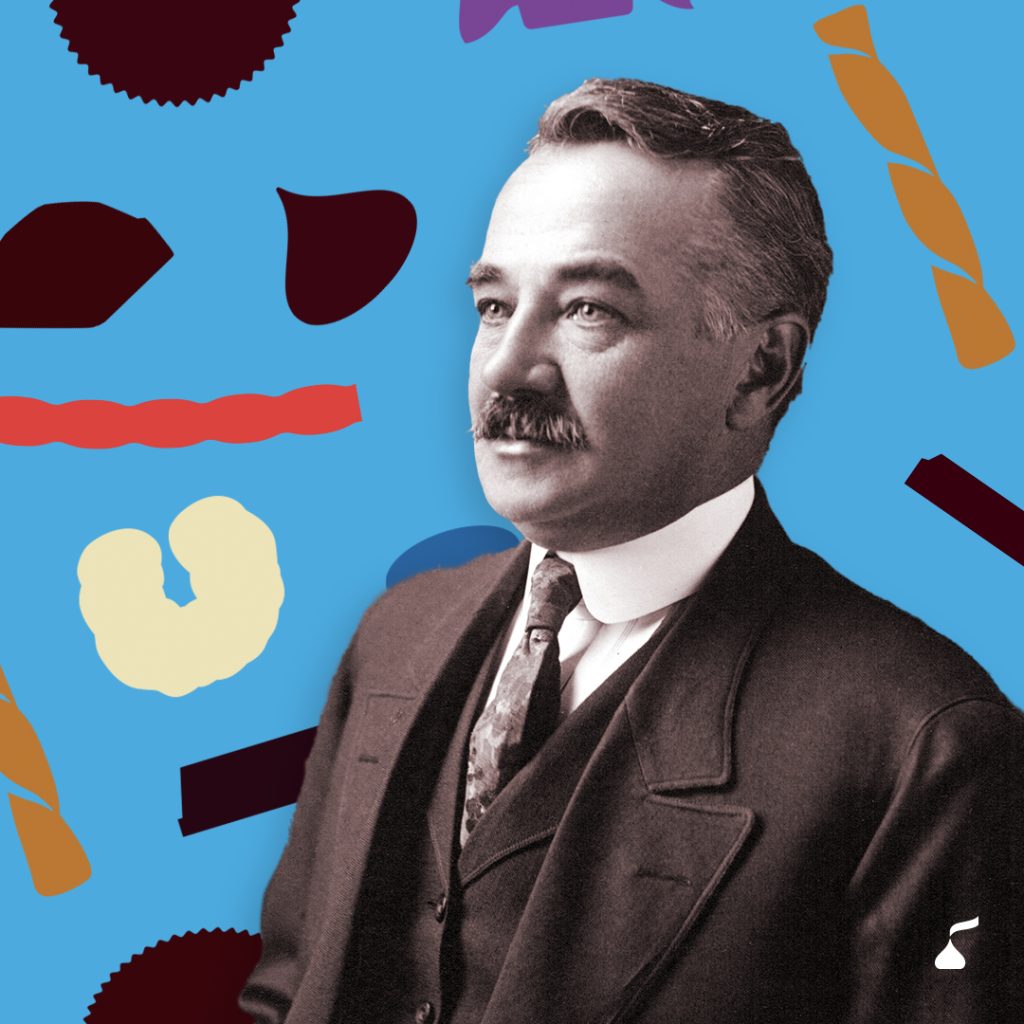
“I knew already that Hershey had a down-to-earth approach to some of these very difficult, complex sustainability challenges that confront the cocoa sector,” he said. “So, that made Hershey, in my mind, stand out as a place where I wanted to work.
“Of course, it’s an iconic American company (founded in 1894), which does count for a lot in my mind. I consider myself a patriotic American. Again, as I said, my family’s been in North America for a long, long time. So, the combination, I think, of the iconic American nature of the company, plus this no-nonsense, down-to-earth approach to some of the big challenges of the industry, that made it very appealing to me.”
McCoy’s other interest in Hershey stemmed from the legacy of its founder Milton S. Hershey and his wife, Catherine, who established the Milton Hershey School in 1909. McCoy described how Milton Hershey gave away his entire fortune in 1918 to create a trust that would in perpetuity support the school, which today is a K-12 state-of-the-art institution in Hershey, Pennsylvania, with an enrollment of 2,000 students from varied underprivileged backgrounds.
“Once they’re admitted to the school, their education, health care, clothing, housing – that’s all paid for, giving these children a chance to succeed that they otherwise would not have,” he said.

Hershey is one of the last chocolate manufacturers to use fresh farm milk to produce the iconic Hershey’s milk chocolate. Hershey has approximately 25-30 milk trucks delivered into the West Hershey plant daily.
“I think the corporate philanthropy story, which is not so well known, is really at the heart of who Hershey is as a company. Hershey’s products are beloved by people around the world, and that has helped perpetuate the Milton and Catherine Hershey legacy, which is about giving back to the community and helping underprivileged kids achieve a better life.”
Hershey and other companies are addressing challenges in cocoa production. McCoy said that nearly two-thirds of the world’s annual cocoa production comes from West Africa, where it is grown almost exclusively on small family owned and operated farms. He’s seen some of the same challenges in cocoa that he experienced on his family’s dairy farm. For example, many cocoa farming families in rural areas where poverty is endemic have little choice but to take an all-hands-on-deck approach to making ends meet. This means that sometimes children work on the family farm, a phenomenon sharply criticized in developed countries when it occurs in cocoa production. Modernization of farming practices handed down from one generation to the next also does not happen easily.
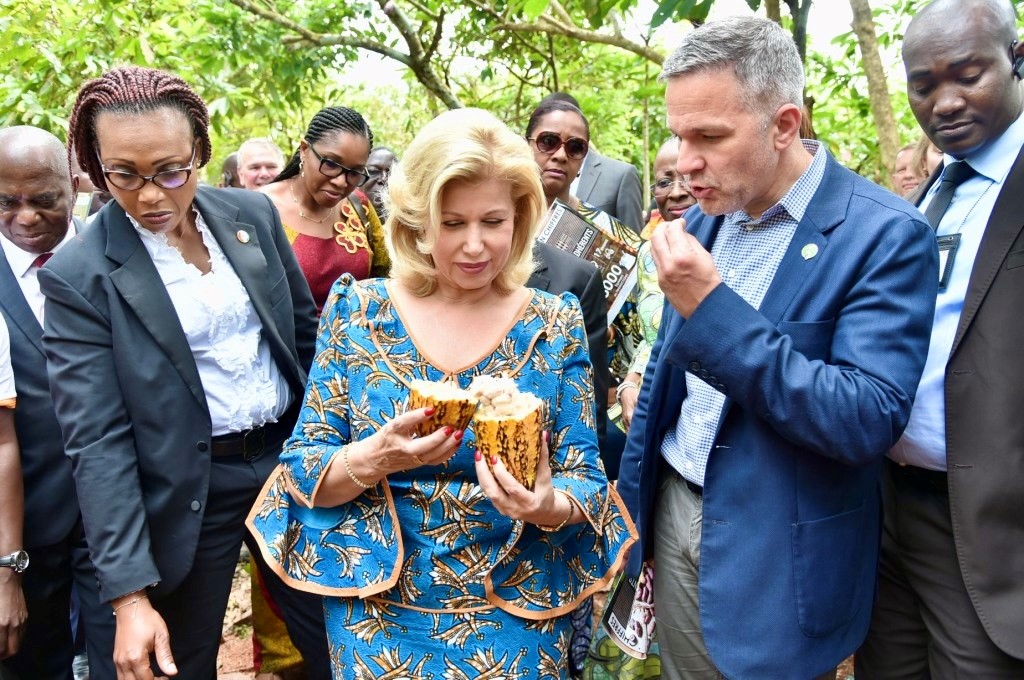
“Our vision is a resilient cocoa supply chain where farmers, children and their families can prosper,” McCoy said. “Through partnerships with farmer cooperatives and organizations that have expertise in agronomy and other aspects of rural development, we’ve trained more than 105,000 farmers in agricultural practices that have been shown to increase crop yields and incomes.
“We are also funding the construction of public primary schools and providing financial incentives to farming families so they can afford to keep their kids in school.”
He said the company built three schools in Côte d’Ivoire in 2023 and at least nine more are planned for completion by the end of 2025. Hershey is also empowering rural women to be part of the solution.
“There’s a concept called Village Savings and Loans Associations that we’re supporting in cocoa farming communities,” he said. “Think tiny local banks that help build financial resilience. They are managed by largely unbanked community members, often women, who pool savings that can be reinvested in businesses or serve as an extra source of capital when it’s needed.”
Hershey has already supported the establishment of 200 such groups and will set up 350 more in Côte d’Ivoire in the next few years.
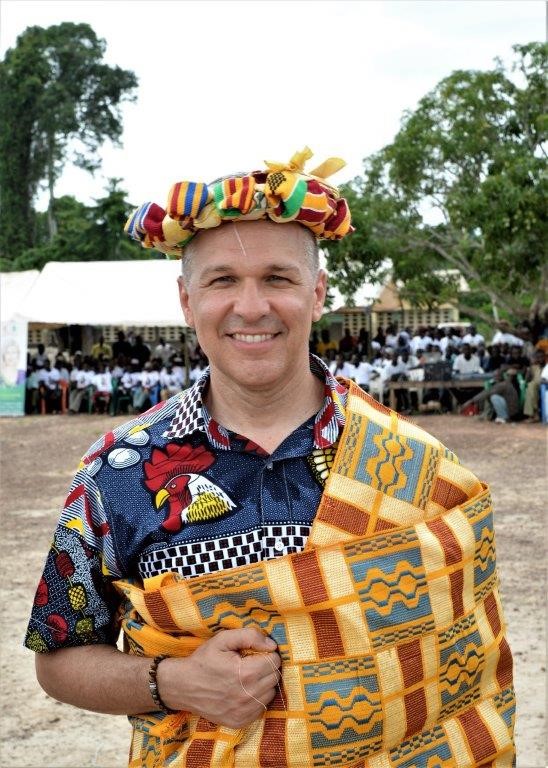
The change that began in Tennessee
During his career, McCoy has lived in six countries and traveled to more than 70 countries, focusing much of his professional and personal life internationally. The life he has built is rooted in an East Tennessee family dairy farm and nurtured by his decision to attend UT Martin.
“I’m sure this is true for many young people who leave home to go off to college, of course – it’s a whole experience in building self-confidence, finding your way, and finding out who you are,” he said. “For me, there was something about the environment at UT Martin that encouraged me to be willing to look at the world in a different way and seek opportunities to find that other vantage point.”
McCoy drops no hints about slowing down.
“I want to remain active as long as possible. Travel, for work and pleasure, is very rewarding for me, and I enjoy helping introduce others, through social media for example, to the world that I am experiencing, in all its beautiful diversity,” he said. “Perhaps subconsciously, I am influenced by the Jewish concept ‘tikkun olam,’ which emphasizes the individual’s responsibility to perform deeds to repair and improve the world.”
It’s called “making a difference,” and that’s no cliché with Tim McCoy, who continues to travel around the world to change lives for the better.

